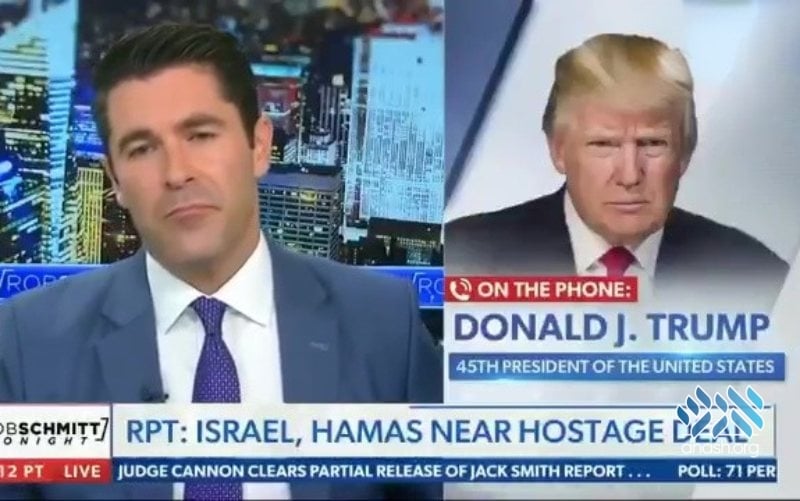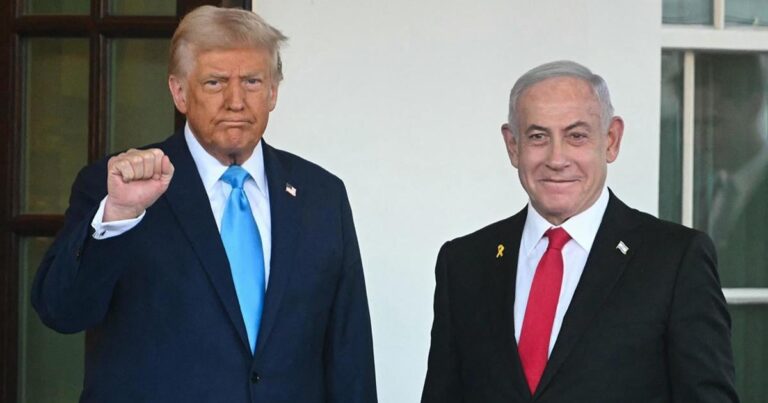
War Summary, Day 466: Hamas is now demanding a map and timeline of IDF withdrawal and for more time to review conditions, some more details of the deal, Smotrich is negotiating to stay in the coalition, Forums meet with Netanyahu and don’t get a satisfying response, and Iranian VP says Israel put explosives in their centrifuges.
By Mrs. Bruria Efune
98 held captive in Gaza.
36 hostages confirmed murdered held in Gaza.
117 living hostages rescued.
40 hostage bodies rescued.
1,814 Israelis killed.
411 fallen soldiers and police in the battle in Gaza.
87 fallen soldiers in Northern Israel.
14 fallen soldiers and police in Judea & Samaria.
30,683 estimated projectiles fired at Israel.
88,000 Israelis displaced from their homes.
1 Jewish nation united in prayer, charity, and good deeds.
Top Headlines:
- Hamas is now demanding a map and timeline of IDF withdrawal
- Hamas asked for more time to review conditions
- Some more details of the deal
- Smotrich is negotiation staying in the coalition
- Forums meet with Netanyahu, don’t get satisfying response
- Iranian VP says Israel put explosives in their centrifuges
Hostages:
This morning, it was reported that both Israel and Hamas agreed to the draft for a proposal, and that after a few technical details were worked out, the final draft could be signed.
By evening, Hamas said that they can’t agree until Israel gives a timeline for withdrawal, with detailed maps of positions during the withdrawal and of the buffer zone. They want it as a guarantee that Israel will fully withdraw, and not take too much area for the buffer zone. (As noted last night, if Hamas does turn down the deal, it will be because they want a guarantee that there will be a complete ceasefire and withdrawal, and no return for Israel.)
It was later reported that Hamas requested an extension of a few hours to review several clauses in the agreement, before they could give their answer.
Both the Biden and Trump teams say they hope the deal will close this week, with implementation beginning by the end of the week. This means that the ceasefire will start under Biden, but be implemented under Trump. Negotiators are working through the night to write out all the agreement details.
Arab media is saying that Trump’s envoy, Steve Witkoff, swayed Netanyahu more towards concessions in one meeting than Biden did all year.
There are various reports in Arabic media that are notable, but cannot be fully trusted. On such report os that Hamas has already started preparing the hostage sin groups, for their release. Another is that Egypt is preparing to take over the Rafah Crossing, in order to transfer huge amounts of aid into Gaza from the first days of the deal—without IDF presence. Another report is that for every soldier released in the second stage of the deal, 20 terrorists with life sentences will be released from prison, some of whom are veteran terrorists. For every one of the female soldiers released in the first phase, 90 terrorists will be released, including some with life sentences.
Also according to unverified but typically reliable reports, the order of the first hostages to be released has been agreed on. On the first day, three women who are not in the IDF will be released. Several days or a week later, the Bibas children will be released (unknown if they will be with their mother). Some time later, the five young female IDF observers will be released. In a horrific form of psychological torture, Hamas refuses to tell who will come back alive, and who in a body bag.
Within the coalition, the Otzma Yehudit party, chaired by Ben Gvir, will vote against the deal, and will likely leave the government in protest. The Religious Zionist party, chaired by Smotrich, will also vote against the deal, but is in negotiations with Netanyahu over staying in the government, and not leading to a possible collapse. Smotrich reportedly has a few demands: A guarantee that the IDF return to war in Gaza, that the war drastically increase in strength, that the IDF stops with the “raids” method and instead holds all territory after battles, and that humanitarian aid be delivered only at the bare necessity to keep the civilians alive and starve out Hamas.
If Netanyahu publicly agrees to Smotrich’s demands, there’s a significant chance that Hamas will turn down the deal. However, if the agreement is kept secret, even just for a few weeks, the Religious Zionist party risks losing all their voters.
The Israeli public is very torn on the deal. Everyone agrees it’s a win for Hamas, but a majority of people feel despair and just want the hostages home, even with the heavy cost. Still, a large group is firmly against it, hoping for a better way to bring the hostages home.
The larger forum representing families of the hostages (which is officially apolitical, but strongly leans left), is in support of the deal, but wants it faster, and with guarantees for the second phase to bring all the hostages home. The feeling between this group is of cautious hope, for the first time in a long while.
The smaller Tikva Forum of hostage families (which leans right), as well as the Gevura Forum of families of fallen soldiers and reservists (also leans right) are vehemently against the deal. These groups are concerned that far more lives will be lost as a result of rearming and empowering Hamas, and teaching them that hostage-taking is a guarantee for survival. They also believe that the deal risks the lives of many of the hostages who would only be released in the second phase.
Netanyahu met with leaders of all three forums today, in two separate meetings—neither came out satisfied.
The representatives of the forum of families of hostages said that Netanyahu explained the ongoing negotiations to them, but they were left concerned that the second stage isn’t guaranteed, and many of the hostages will be left behind.
The Tikva and Gevura forum representatives say that Netanyahu committed to making sure every last hostage is brought home, and that the Israeli government will overthrow Hamas even with a deal. The representatives were not reassured and asked Netanyahu to stop the deal, even now at the last moment.
In my own understanding: Steve Witkoff must have put incredible pressure on Netanyahu to get such huge concessions—but we don’t know what that pressure was, how much was threats, and how much was carrot-on-a-stick. Netanyahu is firmly leaving open a strong possibility of returning to war after six weeks. We don’t know if the Trump admin will force the second phase, or will instead back Israel in returning with full strength.
The moment the Rafah Crossing is opened, and the Netzarim Corridor is dismantled, Hamas will begin to rearm and return to Northern Gaza. If they suspect that the second phase of the deal won’t go through, they’ll immediately start setting up booby-traps with cameras and weapons everywhere. An Israeli return after 6 weeks could bring very heavy losses to the IDF, unless there are significant changes to the battle, such as flattening entire cities using airstrikes before IDF troops enter, in order to remove all the booby-traps and above-ground Hamas hideouts. Even this won’t totally reduce casualties without massive miracles.
Gaza:
Thank G-d, there were no fallen heroes reported today!
While the IDF hasn’t released information about it, there was heavy bombing of Hamas targets across Gaza today, including in Central Gaza.
Judea & Samaria:
The IDF carried out a drone strike in Jenin. Details have not yet been released, but it appears that a cell of around 6 terrorists was targeted and eliminated.
Yemen:
This morning, a family in Mevo Beitar, near Jerusalem, stepped outside to discover a massive piece of an intercepted ballistic missile from Yemen lodged into their roof. Thank G-d, the piece stopped right at the roof of the home’s bomb shelter. The family had been in their bomb shelter at the time of impact, and didn’t hear it. Shrapnel impacts were also reported in nearby Mevo Beitar and Tzur Hadassah.
The Houthis claim to have fired a cruise missile at a power plant in Eilat today, but no such thing was seen. The terrorist spokesman announced that attacks will increase until a ceasefire in Gaza comes about.
Iran:
In an online interview, Iranian Vice President, Mohammad Javad Zarif, claimed that Israel planted explosives in centrifuges that the country bought for its nuclear program. He did not divulge when this occurred, but did express a subtle level of paranoia at Israel’s ability to hide explosives everywhere.
Sponsored by Raizel and Nechemia Schusterman in honor of the Efune family and all they do to keep Eretz Yisroel safe and everyone informed!
VIDEOS


